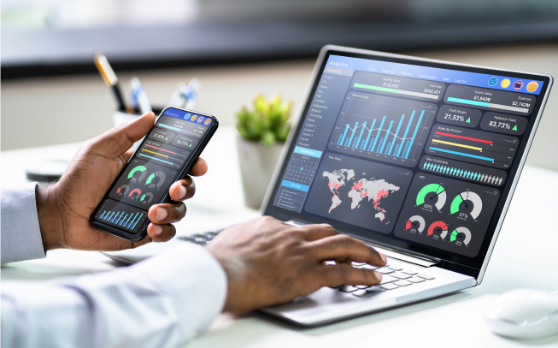Australian SMEs must adopt Ai for competitive advantage, especially in cybersecurity. Workday’s Global Study of AI in business, study shows 90% of surveyed businesses use AI for operations, though its rapid evolution poses uncertainties and potential risks.
Evolving AI and generative AI
AI systems possess reasoning, problem-solving, and learning capabilities. They make predictions using developed algorithms, generating outputs like content or recommendations. Generative AI models like ChatGPT, Google’s Bard, and DALL.E 2 create novel content across various formats based on prompts.
KPMG highlights generative AI’s transformative potential, emphasising speed, efficiency, and task automation for businesses. Various applications are mentioned:
- Information technology
- Human resources
- Operations
- Finance
- Audit
- Legal
- Marketing
AI is versatile, aiding code development, content creation, and complex information summarisation. WIRED advises using AI for brainstorming, writing tone adjustments, coding, and productivity enhancements. However, ethical and security concerns warrant human involvement in crucial AI decisions, as misleading or false outputs can arise.
How can AI help protect businesses against threats
It’s not all doom and gloom though. AI is useful for cybersecurity, including to:
- Battle bots
- Handle lots of data
- Improve vulnerability management
- Boost security overall
- Minimise process duplication
- Identify unknown threats
- Speed up time needed to detect and respond to threats
- Reduce, and possibly eliminate, time-consuming tasks
- Secure authentication
- Over time, learn more.
To excel in AI, seek external insights and collaborate with industry peers for ethical standards. The CSIRO provides a directory of 100+ vetted Australian businesses aiding AI adoption. The government offers eight principles to guide ethical AI use, facilitating their implementation in your operations.
How attackers could use AI to their benefit
However, there’s a flip side to AI and businesses. AI hands savvy attackers the tools to harm including to:
- Create deepfakes that can influence democracy, carry out fraud or other deceit.
- Generate misinformation or disinformation
- Write malware code
- Automate and personalise interactions online and offline with people through chatbots and spear phishing emails
- Reduce the manual effort needed to unleash cyberattacks
- Engage in social engineering to manipulate human’s trust and emotions
- Mimic human behaviour to copy authentication processes, guess credentials
- Trick biometric identification systems.
Stay vigilant as AI advances. Educate staff on its evolving capabilities and watch for potential cyber threats. Employ fact-checking and common sense, and invest in IT expertise to navigate AI’s developments. Prioritise cybersecurity in your risk management strategy.
Review coverage as cyber threats evolve
Adapt insurance coverage to changing cyber risks and opportunities. Let us, your broker, assist in reviewing and updating policies, including specialised coverage for cyber incidents, aligning with your business needs.
Cyber insurance is cover for a diverse range of risks about IT infrastructure as well as cyber-related risks, including:
- First-party cover, where your business experiences a cyber breach and suffers financial losses.
- Third-party cover for losses that others suffer due to a cyber breach in your business.
Even if you’re a micro business, employing four or fewer people, or a sole trader, there is customised cyber insurance for your needs and industry. We can guide you on how to manage risk for cyber security in the evolving AI era.

